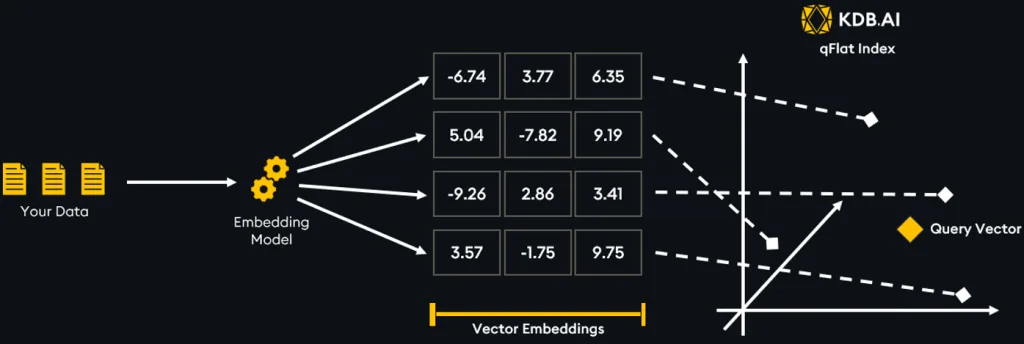In this sample we will explore using KDB.AI’s qFlat index for storing document embeddings. The qFlat index is stored on-disk rather than in-memory and therefore has an extremely low memory footprint for both insertion into the index, and vector search. This is a great option for memory constrained environments such as edge devices.
The notebook will walk through loading a PDF document, chunking it into sentences, embedding each sentence, and storing the embeddings in the KDB.AI vector database using the qFlat index. Once this is complete, you will be able to query the system to retrieve the most relevant documents to your query.

Download the Jupyter Notebook at the GitHub Repository, or open the code directly in Google Colab.